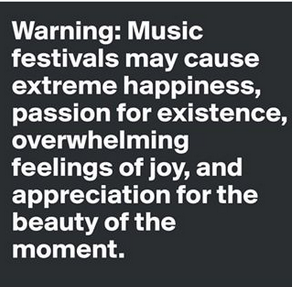Going To A Music Festival Makes You Happier
Going To A Music Festival Not Only Makes You Happier, But It Can Also Make You Live Longer
Anyone who has been to a music festival can tell you that something happens to you when you walk through those gates. Maybe it is the ambiance or the energy that beckons you, the sound of the music or laughter – whatever it is, a good music festival experience usually leaves an everlasting impression and an unforgettable feeling that is rarely experienced in day-to-day life.
It only makes sense that over the past decade, ticket sales for festivals are up, the festival lineup lists every year are growing and the fanbase is seriously becoming obsessed.
According to an Eventbright study, Americans are mad for music festivals and one in five millennials has made a pilgrimage to a music festival. That is a full 25% of the nation’s student population went to a music festival in the last year, according to the study. And that does not include the countless numbers of adults with (or without) disposable incomes who helped to sell out some of the biggest festival venues all over the country for the past few years.
Unlike the youth of the past that were drawn to once-in-a-lifetime, large, live, Rock performances that still have a nostalgic place in our musical history, today’s music festivals have a bias by genre and region. A large number of the top 25 music festival are from the world of electronic dance music. (More on these in another article to come!) and most take place in the nation’s south.
There is also a huge fanbase for the jam band scene and for the music lovers who love to see the “legends”. Year after year, festivals around the country are delighting diverse crowds of all ages with performances from artists who were really at the start of the music festival scene and many of those fans make it a habit every year.
For those who have never been to a music festival, there are any number of reasons that you should make the trek, spend the money, and the vacation days to wear your chosen festival armband to go see your favorite music, but the most intriguing reasons are the findings of ongoing scientific research that makes a connection to music and to our well-being.
Positive Psychology and Music
It has long been speculated that musical activity might be good for the mind, body, or community at large (by Needham,1962), but it has not been until recent decades that serious empirical research has been done looking at the brain and the behavioral, physiological, and psychological effects of human musical engagement.
We have all experienced it, feeling a little down, turn on some music and then the mood is lifted. Same goes with a sad song that may elicit memory and emotions, the musical experience goes beyond simply listening to it; as it is an exercise in imagination, creativity and it is very personal, music involves considerable emotional and cognitive investment.
In a study published in Nature Neuroscience, a groundbreaking neuroscientist used a combination of techniques to investigate the biological mechanisms involved in musical pleasure. Salimpoor found the act of engagement with music can lead to intensely pleasurable experiences in music listeners, and that these intensely pleasurable responses to music can lead to dopamine release in the striatal system, which is the feel-good hormone that gives you all the feels when you listen to your favorite song or are standing deep in the crowd and realize everyone is radiating positivity.
It makes sense that the euphoria music lovers and festival-goers experience are a response where music listening activates a wide-spread bilateral network of brain regions related to attention, semantic processing, memory, motor functions, and emotional processing. No wonder why it becomes a tradition for so many to frequent concerts and music festivals – the PLEASURE CENTER in our brains loves the chemical release.
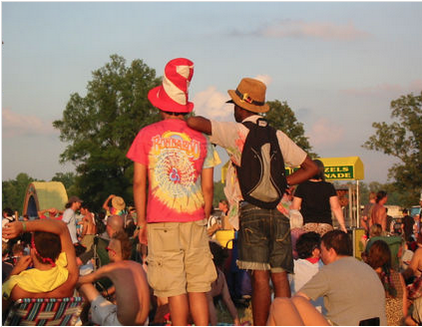
Music has powerful (and visible) effects on the brain
Across all cultures, archeological research has found all types of instruments indicating that music is the one thing that every culture shares in common. And live performances seem to be the one thing that creates a certain level of engagement and community between people.
Despite its widespread presence and importance in many cultures, psychologists and neuroscientists are just now determining music is an intimate part of the human form of life and psyche and they are trying to understand how music affects our brain and music’s effects on the human mind.
Jonathan Burdette, M.D., a renowned neuroradiologist researching music’s effects on the brain said,
“Music is primal. It affects all of us, but in very personal, unique ways,” “Your interaction with music is different than mine, but it’s still powerful.
“Your brain has a reaction when you like or don’t like something, including music. We’ve been able to take some baby steps into seeing that, and ‘dislike’ looks different than ‘like’ and much different than ‘favorite.'”
Burdette and his fellow investigators found a consistent pattern after testing 21 people with functional magnetic resonance imaging (fMRI), which depicts brain activity by detecting changes in blood flow. They found The listeners’ preferences, not the type of music they were listening to, had the greatest impact on brain connectivity — especially on the part of the brain known to be involved in internally focused thought, empathy, and self-awareness.
The researchers also found that listening to favorite songs altered the connectivity between auditory brain areas and a region responsible for memory and social emotion consolidation.
Burdette, who is also a proponent of programs that help people with Alzheimer’s, dementia and other cognitive and physical problems re-connect with music therapy. One such program employs iPods with customized playlists featuring songs popular when the participating elderly individuals were under 30 years old.
“Music exposure also enhances emotional and cognitive functioning in healthy subjects and in various clinical patient groups,”
“You can actually see the power of music,” Burdette said.
“People who were just sitting there, not engaged in anything, light up when they start hearing music from when they were 25.
“If you’re trying to restore neuroplasticity in the brain, to re-establish some of the connections that were there before the injury, music can be a big help, and I’d like to see it used more widely in this country,” he said.
“It’s fantastic. What else can do that? I can’t think of anything other than music.”
Burdette
Other researchers have found that music can also create physiological changes in the body. The idea of sound healing and naturopathic medicine has been around for centuries, but until recently science has just started to observe that music may affect changes in heart rate and heart rate variability. Ask just any EDM fan…
Robert Gupta (2012) believes the power music can heal and that it can rewire the brain. “Music therapy“, he says, “can succeed where conventional medicine fails. It can bring light to the darkest corners of the mind.” He has a very interesting TED talk on the subject.
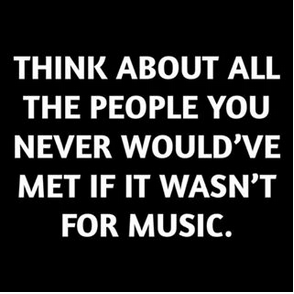
I know all my music-loving friends know the power of music and it makes sense that people at festivals and concerts experience a multitude of sensations, emotions, and stimulation that help to promote a feeling of physical well-being. There is a sense of oneness and inclusion, you just don’t find every day on the “outside”. It is so powerful, music is transformative, on a cold winter’s day, that song you danced to that night at 2 am can come on, pick you up and take you right back there…just hit play and close your eyes.
“Music has healing power. It has the ability to take people out of themselves for a few hours.”
Elton John
Science Shows Music Helps us Flourish in life
The psychologist Csikszentmihalyi in his book Flow: The Psychology of Optimal Experience (1990), he reports finding that people are happiest when they are most absorbed in their actions and experiencing flow. He goes on to describe a “Flow” experience as “where we are optimally attentive and tuned in to what we are doing, deploying our most developed skills which in turn afford us feedback in the form of positive emotions, a sense of accomplishment and purpose, and even better relationships.
Personally, I know I have experienced “flow” at every music festival I have been to and I think that is a big part of what keeps me coming back. Searching around, I found a research journal where Adam Croom, set forth a hypothesis and provides supporting evidence for the claim that musical engagement can positively contribute to one’s living a flourishing life.
In his paper, he cites Groundbreaking researcher Martin Seligman’s book Flourish, where Seligman developed a model of well-being, as a way of bringing science to the study of happiness. A key element of this model is the idea of engagement.
In Flourish, Seligman identifies five commonly recognized factors that are characteristic of human flourishing or well-being: (1) positive emotion, (2) relationships, (3) engagement, (4) achievement, and (5) meaning.
Croom argues throughout the course of his article that musical engagement can positively influence all five of these factors Seligman identified, and as a result, he has compelling evidence that music and musical engagement can positively influence one’s experience of meaning or purpose in life and it can contribute to one’s living a flourishing life.
I’m glad the scientist and researchers are finally catching up to what my FESTIVAL FAM already knows… musical engagement is GOOD for the SOUL!
What Is It That Keeps us Coming Back?
Dopamine and novelty.
Novelty is one thing our brains love that can trigger those feel-good chemicals. Whether it’s a shiny new iPhone, car, house, shoes, or almost anything, newness gets our attention. The potential reward of something new triggers the release of dopamine. Novelty isn’t the actual reward, but what it could represent is. When we experience something new, the frontal and temporal regions activate. The release of dopamine motivates seeking behavior (Bunzeck & Duzel, 2006).
You could attend the same music festival every year and still experience novelty. Just ask Bonnaroo Chris!
So that means you should buy those tickets and start planning your festival trek so all that anticipation can put you in the right mindset to keep radiating positivity as you plan and dream. By the time you make it to your festival destination, you should have left those winter blues far behind. Check out my other blogs for GEAR and Festival Camp tips.
Personally, I like to think of a music festival as sort of an adult playground, where my creative batteries get recharged, my senses get overloaded and I leave feeling like I just added years to my life by letting go of stress and just being in the moment and being alive. Maybe it is the pretty lights, the people or the opportunity to laugh and celebrate with strangers, whatever it is…I’ll see ya NEXT time!
The Benefits of Full Engagement at Music Festivals
Ask anyone who has been to a music festival what the benefits of buying that ticket and taking that ride and many will tell you it is just a chance to get away, to chill-out, to reduce stress, to socialize. A chance to laugh, a time to dance, to get drunk, to get F’ed up, hang out with friends, meet new friends, chase women or men, get out of the box, take a mental break.
Freedom, escape from reality, pure magic and healing. I polled a few of my fellow Loopers and they all had pretty similar answers.
“It’s a huge, colorful playground that lets me be a kid again.”
In a 2011 study, Packer and Ballantyne narrowed the benefits to four. They are the music, social, festival, and separation experience. Music is the common ground for social and festival experiences. The interactions among attendees and performers facilitate separation from everyday life.
The most important function of a music festival is to provide attendees with time and space to explore. The researchers cite personal growth and self-discovery as key outcomes. Participants reported a greater sense of well-being. This included feeling accepted by self and others, and generally positive about life. Some attendees believe festivals give their lives more meaning.
Human musical behavior is well-motivated because attending a music festival provides psychological and health benefits including connecting with others (you might not meet in-day-to-day-life) reducing stress and reducing anxiety.

Music IS the BEST medicine!
I know ultimately I am preaching to the choir here, but there are so many physiological, psychological and health benefits from attending live musical performances. I think everyone can list their top reasons and keep planning…because the music NEVER stopped!
(and there is a real scientific reason)
A new study has found that going to concerts frequently can increase your lifespan and that listening to live music can help you live longer!
In a report by Lecturer Patrick Fagan, a behavioral scientist concluded that: with just 20 minutes of gig-time resulting in a significant 21% increase in feelings of wellbeing. Added to this, additional scholarly research directly links high levels of wellbeing with a lifespan increase of nine years pointing to a direct link between gig-going and longevity.
Accompanying research showed a positive correlation between regularity of gig attendance and wellbeing. Those who attend live concerts once a fortnight and more were the most likely to score their happiness, contentment, productivity, and self-esteem at the highest level (10/10), suggesting that regularly experiencing live music is the key to building a long-standing improvement to wellbeing.
So just imagine all the good good, positive energy you receive at a 4 or 5-day festival.
May we all live FOREVER!
Roo is my church, it restores my soul and revitalizes my faith in humanity.
One Bonnaroo: Loophole comenter wrote
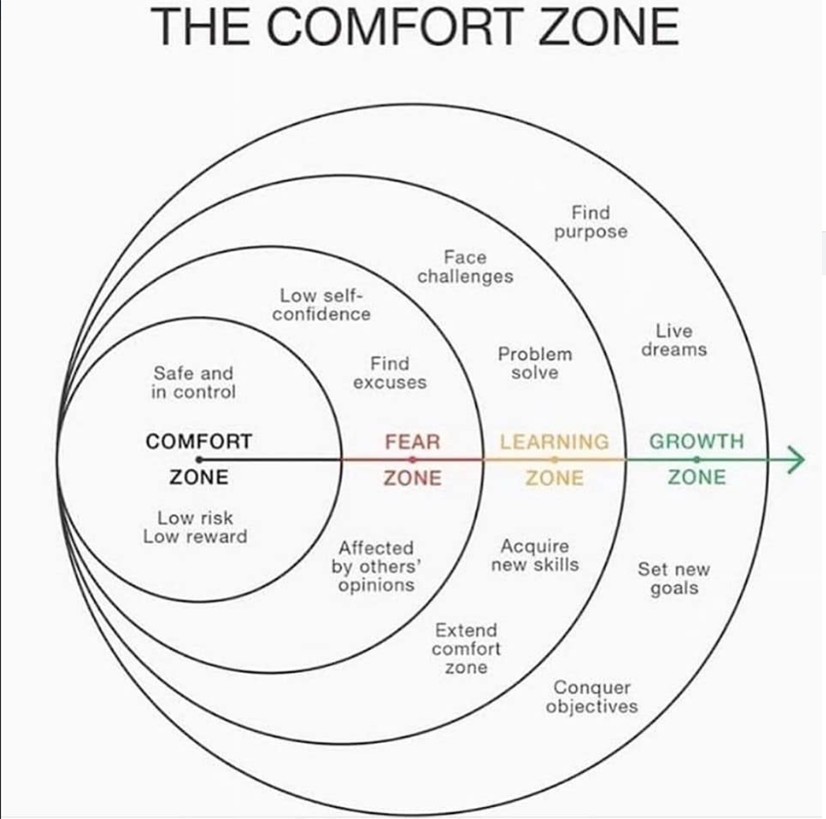
Attending a music festival provides physiological, psychological and health benefits. These include connecting with others, reduced stress and anxiety. While there are potential downsides, a well-planned event mitigates them so start planning your festival camp NOW! (see my downloadable/printable checklist). From my individual perspective, a person can go to a music festival – step out of their “comfort zone”, exercise greater situational awareness, and walk away with more self-confidence high-fives, hugs – RADIATING POSITIVITY!
It is worth the ticket price every time!
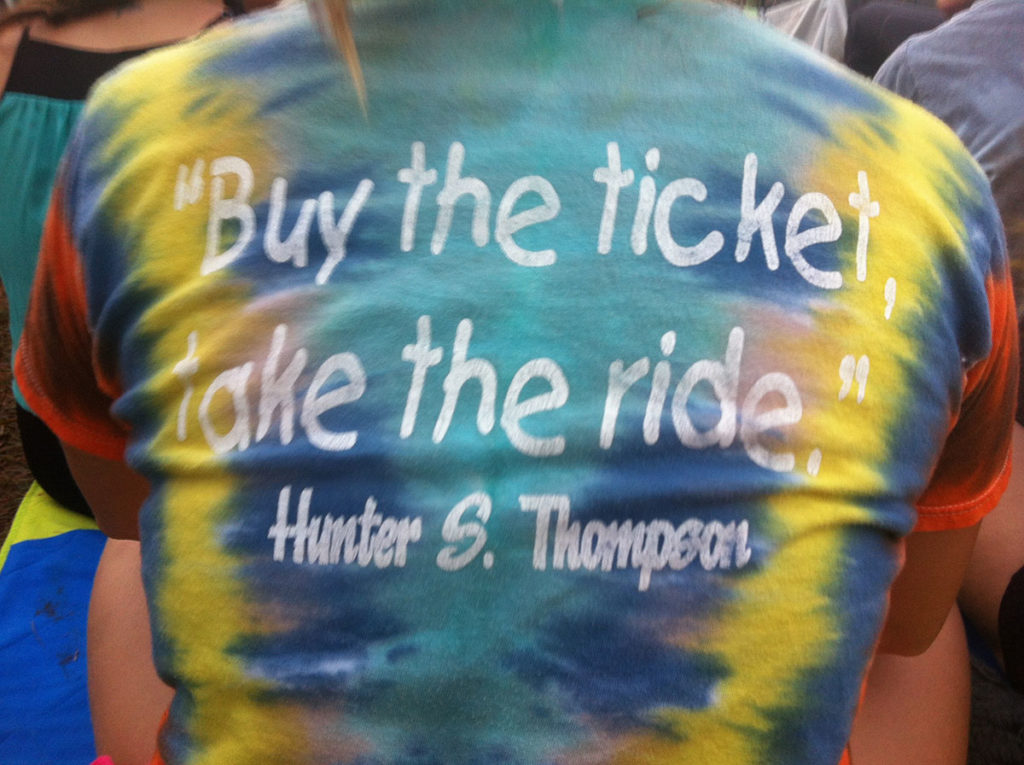

References:
Jonathan Burdette, M.D. (April 12, 2017) Music has powerful (and visible) effects on the brain. from Wake Forest Baptist Medical Center https://www.sciencedaily.com/releases/2017/04/170412181341.htm
Bunzeck, N. & Duzel, E. (2006 August 3). Absolute coding of stimulus novelty in the human substantia nigra/VTA. Neuron, 51(3). Retrieved March 12, 2019, from https://www.sciencedirect.com/science/article/pii/S0896627306004752#!. https://doi.org/10.1016/j.neuron.2006.06.021
Croom, A.M. (2011). Music, neuroscience, and the psychology of well-being. Frontiers in Psychology, 2, 393. Retrieved March 8, 2019, from https://www.ncbi.nlm.nih.gov/pmc/articles/PMC3249389/. DOI: 10.3389/fpsyg.2011.00393
Gupta, R. (2012 October 2). Robert Gupta: Between music and medicine. Retrieved March 11, 2019, from https://youtu.be/qx6KK-eT4qw
Kori D. Miller (17-01-2020) The Benefits of Full Engagement at Music Festivals https://positivepsychology.com/power-of-engagement-at-music-festivals/
Packer, J. & Ballantyne, J. (2011). The impact of music festival attendance on young people’s psychological and social well-being. Psychology of Music, 39(2), 164-181. Retrieved March 11, 2019, https://espace.library.uq.edu.au/.
Rickard, N. (2014). Editorial for “Music and well-being” special issue of PWB. Psychology of Well-Being: Theory, Research and Practice, 4(26). Retrieved March 13, 2019, from https://psywb.springeropen.com/articles/10.1186/s13612-014-0026-3. https://doi.org/10.1186/s13612-014-0026-3
Salimpoor, V.N., Benovoy, M., Longo, G., Cooperstock, J.R., & Zatorre, R. J. (2009 October 16). The rewarding aspects of music listening are related to degree of emotional arousal. Plos One. 4(10): e7487. Retrieved March 9, 2019, from https://journals.plos.org/plosone/article?id=10.1371/journal.pone.0007487
Seligman, M. (2011). Flourish. New York, NY: Atria



